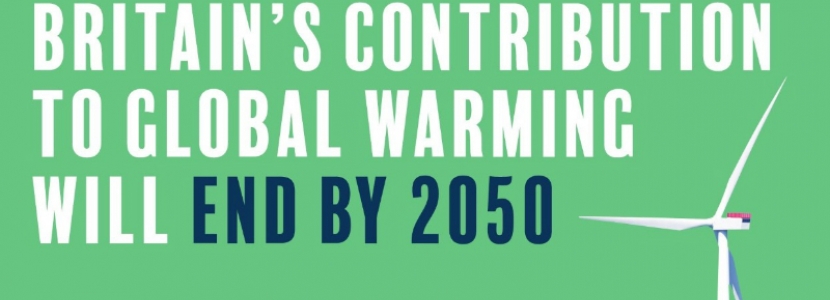
Mario Creatura has welcomed the announcement that the UK will become the first major economy in the world to end its contribution towards global warming, as the Conservative Government introduces a new law to achieve net zero greenhouse gas emissions by 2050.
Last year the Conservative Government commissioned an independent panel of experts to advise on achieving net zero. After careful consideration of their report, published in May, the Prime Minister has now announced that the UK will legislate to end its contribution to global warming.
Thanks to Conservative efforts, the UK has reduced emissions faster than any other advanced country in the world, with 2018 the cleanest and greenest year on record. By legislating for net zero, will now go even further, phasing out coal power, committing billions of pounds to develop new renewable technologies and creating hundreds of thousands of low carbon jobs.
Commenting, Mario said:
“I am truly proud that it is the Conservative Party which is legislating to make the UK the first major economy in the world to end its contribution towards global warming.
“Climate change is one of the most urgent global challenges we face, and we are leading the world in our efforts to tackle it.
“By investing in green industries and decarbonising our economy we will leave the environment in a better state for the next generation – carrying on a long Conservative tradition of making sensible, workable policies that protect the planet while growing the economy.”
Secretary of State for Business, Energy and Industrial Strategy Greg Clark said:
“The UK has always been a global leader in tackling climate change - from being the first country to raise the issue on the international stage, to cutting emissions faster than all major economies and quadrupling renewable electricity so that over half is now produced from low-carbon sources.
“We want to continue our global leadership and that’s why we are introducing a legally binding net zero target to end the UK’s contribution to global warming entirely by 2050. The report we commissioned from the Committee on Climate Change makes clear that we have laid the foundations to achieve a net zero emissions economy, and that it is necessary and feasible.
“Almost 400,000 people are already employed in the low-carbon sector and its supply chains across the country. Through our modern Industrial Strategy we’re investing in clean growth to ensure we reap the rewards and create two million high quality jobs by 2030.
“This will create a cleaner, greener future for generations to come.”
- We are introducing legislation that will set a target of net zero emissions in law, ensuring we protect the planet for future generations. We will upgrade the existing target of an 80 per cent reduction in emissions in the Climate Change Act, to achieve 100 per cent, or net zero emissions, by 2050 (Prime Minister’s Office/BEIS, Press Release, 12 June 2019, link).
We are already leading the world in our efforts to tackle climate change:
- Phasing out coal power, leading to two full weeks without burning any coal – the longest time since the Industrial Revolution. Britain has already had 1,500 coal free hours in 2019 so far, as total coal power use has dropped by almost two-thirds compared with the first four months of 2018. We will phase out unabated coal completely by 2025 (Business Green, 7 May 2019, link).
- Supporting renewable technologies, securing the future of clean energy in the UK. With our support, £92 billion has been invested by businesses in clean energy since 2010 and renewables now generate 37.1 per cent of the UK’s electricity, up from 6.1 per cent in 2010 (BEIS, Authored Article, 20 February 2018, link; BEIS, Renewable electricity capacity and generation, 28 March 2019, link).
- Creating hundreds of thousands of low carbon jobs, growing our economy while reducing emissions. Our investment has meant there are almost 400,000 people working in low carbon businesses and their supply chains across the country (BEIS, Authored Article, 20 February 2018, link; PoliticsHome, 30 September 2018, link).
Our efforts are already having a positive impact:
- Reducing greenhouse gases by a quarter since coming to office in 2010. In 2010, total greenhouse gases were 600.2 million tonnes carbon dioxide equivalent. In 2018, this had fallen by 25 per cent to 448.5 million tonnes carbon dioxide equivalent (BEIS, 2018 UK greenhouse gas emissions: provisional figures – data tables, 28 March 2019, link).
- Increasing renewable electricity generation six-fold under the Conservatives. 2018 was the greenest year to date for electricity generation, with renewable sources supplying a record 33 per cent of electricity in 2018, up from 29 per cent in 2017, and up from 6.7 per cent in 2009 (The Guardian, 3 January 2019, link).
- Reducing emissions faster than any other G20 country. A study by PwC found that the UK has decarbonised faster than any other G20 country, reducing emissions by 29 per cent in the last decade alone, while continuing to grow our economy (PwC, UK and China leading on low carbon transition but global emissions are still rising, 4 October 2018, link).
Labour’s policies would put all of this progress at risk:
- Labour’s renationalisation plans would disrupt our efforts to tackle climate change according to leading energy groups. The Energy Networks Association found that a nationalised system would be poorly placed to invest in new technology needed to decarbonise, as it would have to compete with other government spending priorities. By 2021, £51.7 billion is estimated to be invested in the UK energy sector – 95 per cent of which is financed by the private sector (Current News, 26 September 2018, link; IPA, Analysis of the National Infrastructure and Construction Pipeline, 26 November 2018, link).
- But CBI went further saying Labour’s plans to renationalise the energy network is already threatening our efforts to tackle climate change. It said: ‘Much-needed investment is drying up under Labour's threats, which seriously risks hampering efforts to tackle climate change, and puts in doubt the innovation that will deliver a net-zero carbon economy’ (The Guardian, 15 May 2019, link).
- Under Labour, the UK was near the bottom of G20 league tables for green investment and renewable energy. The UK was 15th in the G20 for five-year growth in investment in clean energy and 13th for five-year growth in installed renewable energy when Labour were in government (Pew Charitable Trusts, Who’s winning the clean energy race? 2010 edition, 29 March 2011, link).


